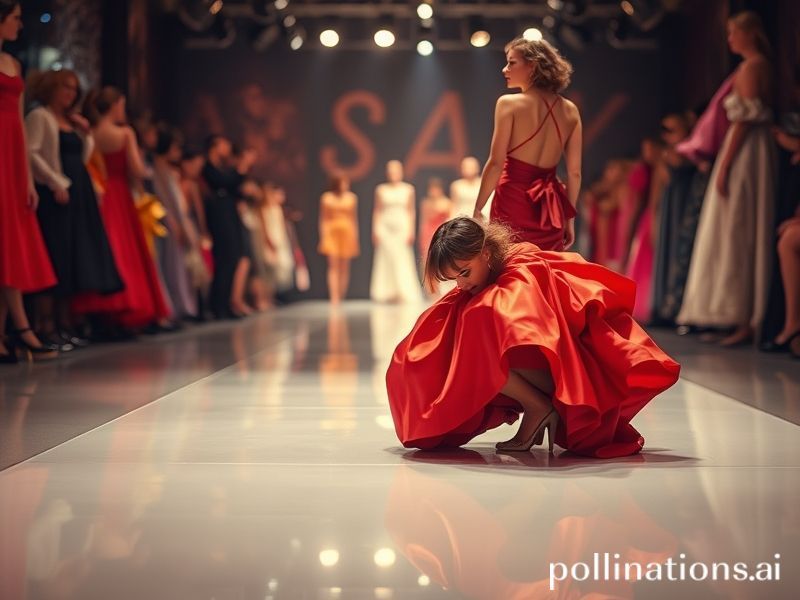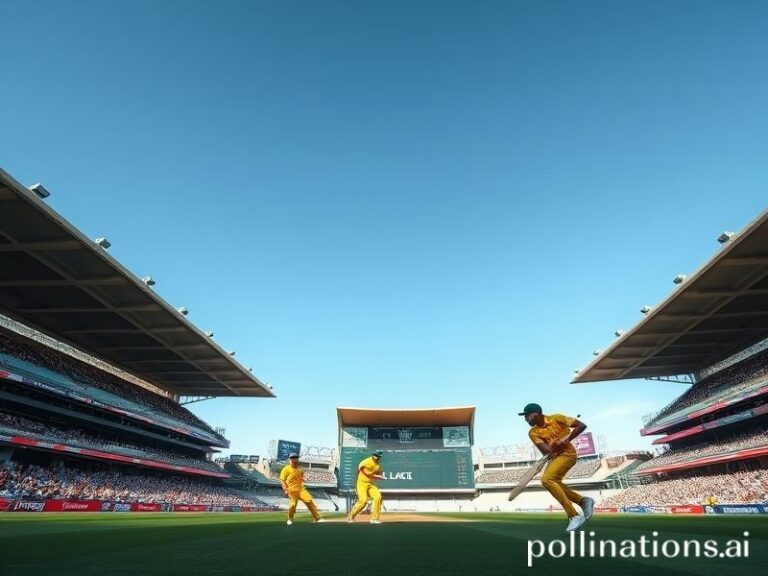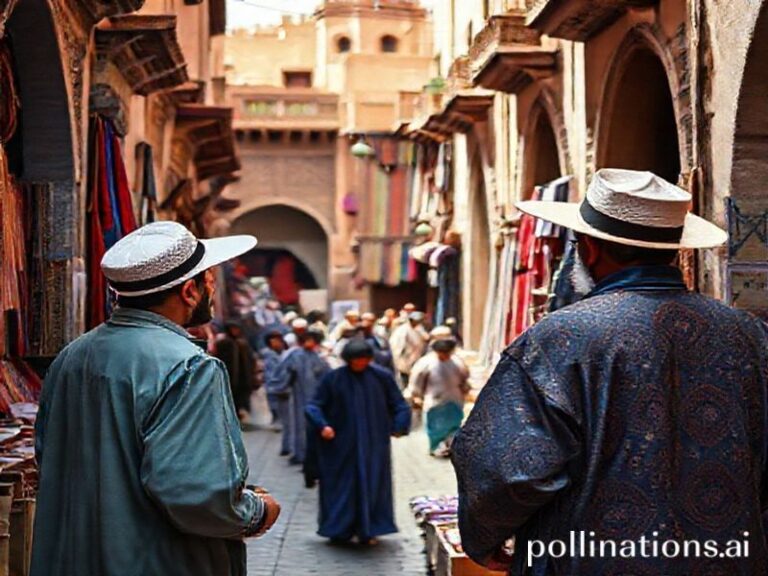Project Runway: How a Reality TV Show Accidentally Explained Global Politics Through Fashion
**The Global Runway: How a Reality TV Show Became an Accurate Metaphor for Geopolitics**
In the grand theater of international relations, where nuclear powers play chicken over shipping lanes and climate change negotiators argue about commas in 500-page documents, humanity has inadvertently created the perfect metaphor for itself: a reality television show about making dresses under impossible deadlines with insufficient materials while being judged by people wearing sunglasses indoors.
“Project Runway,” that glittering monument to creative capitalism, has transcended its humble origins as Bravo’s attempt to make fashion accessible to Midwestern suburbanites who think haute couture is what happens when you leave yogurt in the trunk too long. What began in New York has metastasized across 23 international versions, from “Project Runway Australia” (where the crocodile leather requirements raised some eyebrows) to “Project Runway Middle East” (proving that even cultural differences dissolve when faced with a chiffon challenge).
The show’s genius lies not in its celebration of creativity, but in its unwittingly accurate portrayal of how the modern world actually functions. Contestants receive vague briefings (“Make an avant-garde look inspired by the Hamptons!”), impossible deadlines, and budgets that wouldn’t cover a decent lunch in Geneva. They must collaborate with difficult personalities while maintaining their “brand,” all while being filmed for posterity. If this sounds familiar, it should—it’s essentially how every international climate summit operates, except with better lighting and more honest criticism.
The global proliferation of “Project Runway” reveals uncomfortable truths about our collective psyche. Brazil’s version features contestants who’ve literally grown up in favelas, transforming found materials into high fashion—a skill that proves surprisingly useful when your actual economy resembles a failed design challenge. The German iteration runs with typical efficiency, eliminating contestants who can’t produce adequate documentation for their design choices, while Italy’s version somehow involves more family drama than actual sewing.
What’s particularly illuminating is how each country’s version reflects its national character. The British edition features contestants who apologize for winning, while the American original remains the only version where participants genuinely believe success is purely merit-based rather than influenced by camera time or producer manipulation—a delusion that also explains American foreign policy since 1945.
The show’s international success speaks to something deeper than our collective appetite for pretty clothes and manufactured drama. It’s perhaps the only truly honest reality show, openly acknowledging what the World Economic Forum never will: that we’re all just making it up as we go along, hoping nobody notices the hem is crooked and the whole thing might fall apart under scrutiny. The fashion industry, with its seasonal reinventions of what’s supposedly essential, mirrors our global economy’s ability to declare yesterday’s crisis today’s opportunity with a straight face and a $3,000 price tag.
As “Project Runway” enters its third decade of cultural relevance, its greatest achievement isn’t launching careers or democratizing fashion—it’s providing humanity with a shared vocabulary for describing our collective predicament. When the UN Security Council debates sanctions, they’re essentially doing the garment district equivalent of arguing whether magenta reads as pink under runway lighting. When trade agreements collapse, it’s just nations being told “One day you’re in, and the next day you’re out” on a geopolitical scale.
In the end, we’re all just contestants now, frantically stitching together solutions from whatever materials our predecessors left lying around, knowing we’ll be judged by standards that shift faster than hemlines, while the clock ticks toward an elimination that feels increasingly inevitable. The only difference is that on the show, someone actually wins.







